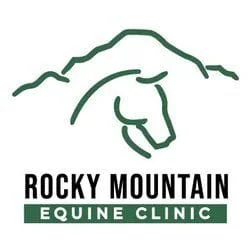
Horse lovers have observed this frightening disease for centuries. It’s been called azoturia, tying-up, cording up, holiday disease and Monday morning disease; the last two names reflect that symptoms are sometimes observed after hard work followed by a period of rest.
In the last couple of decades, researchers have made progress in understanding the causes and treatment of what we now know as exertional rhabdomyolysis.
Symptoms
Symptoms usually come on after horses start to exercise or after resting post-exercise. Signs of exertional rhabdomyolysis include:
- Excessive sweating
- Rapid heart beat
- Rapid breathing
- Refusal to move
- Uncontrollable muscle contractions
- Painful, firm muscles in the low back and rump
- Discolored urine
Causes
Exertional rhabdomyolysis has several causes. Sporadic episodes stem from muscle strain, overtraining and electrolyte or dietary deficiencies. In horses with herpes or the flu, too much exercise can bring on an episode of sporadic exertional rhabdomyolysis.
Inherited abnormalities cause chronic forms of exertional rhabdomyolysis. Quarter Horses, drafts and warmbloods are more likely to have polysaccharide storage myopathy (PSSM), a condition resulting from abnormal glycogen storage. Arabians and Thoroughbreds may inherit recurrent exertional rhabdomyolysis.
Diagnosis
Since different types of exertional rhabdomyolysis require different treatments, it’s crucial that your equine veterinarian diagnose the type affecting your horse. Your vet may want to do any combination of the following to diagnose the condition:
- Take a detailed history of your horse
- Perform a thorough physical exam, including muscle palpation
- Blood samples or hair root samples
- An exercise response test, which involves taking blood samples before and several hours after light exercise
- A muscle biopsy for lab analysis
Sporadic ER
Horses of any age or breed can get sporadic exertional rhabdomyolysis. Common causes include overexertion, muscle trauma, nutritional or electrolyte imbalances and extreme fatigue. Horses participating in endurance competitions on hot, humid days are susceptible to sporadic exertional rhabdomyolysis because of high body temperatures, insufficient fluids and electrolytes and depleted stores of energy.
To manage a horse with sporadic exertional rhabdomyolysis, equine veterinarians recommend rest, fresh water and possibly tranquilizers or NSAIDS. Once the horse gains strength, you can gradually increase the amount of daily exercise. Supplementing the horse’s diet with sodium, selenium and vitamin E may also help. Talk to your equine veterinarian about the best diet for managing sporadic exertional rhabdomyolysis.
Chronic Exertional Rhabdomyolysis
Horses with nervous personalities experience more episodes of recurrent exertional rhabdomyolysis. Stress often induces the condition. A balanced diet, reasonable exercise program and adequate intake of minerals and vitamins are the ways to treat chronic exertional rhabdomyolysis. Your equine veterinarian can help you determine how much fat, fiber, calcium and other relevant nutrients your horse needs.
Worried about exertional rhabdomyolysis? Call us today so we can help diagnose and manage your horse’s treatment for optimal health.
